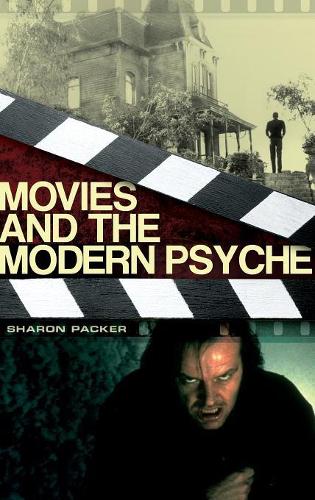
Movies and the Modern Psyche
(Hardback)
Publishing Details
Movies and the Modern Psyche
By (Author) Sharon Packer MD
Bloomsbury Publishing PLC
Praeger Publishers Inc
30th September 2007
United States
Classifications
General
Non Fiction
Psychology
791.43019
Physical Properties
Hardback
216
Width 156mm, Height 235mm
482g
Description
By looking at the interactions between cinema and psychology, Packer offers readers clear and basic insights into some of the most fundamental reasons why film is such an important influence upon our lives today. Movies and the Modern Psyche first describes the basic concepts of psychoanalysis, experimental psychology, behavioral conditioning, and hypnosis, which have all played major roles in the histories of both film and psychiatry. It then goes on to discuss the recent rise in film therapy, drug treatments, treatment for drug abuse, and the closing of asylums, to show how shifts in treatment techniques, theories, and settings are foreshadowed and fossilized by film. Psychology and cinema are kindred cousins, born at the same time and developing together, so that each influences the other. From the mind-controlling villains that occupy early horror films and Cold War thrillers (like Caligari, Mabuse, and The Ipcress File), to the asylums that house numberless political allegories and personal dramas (in Shock Corridor, Spellbound, One Flew over the Cuckoo's Nest, and Girl Interrupted), to the drugs, phobias, and disorders that pervade so many of our favorite films (including, as a small sample, Vertigo, Night of the Hunter, Psycho, Rainman, Fight Club, Requiem for a Dream, and Batman Begins), there is no escaping either psychology in the movies, or the movies in psychology. By looking at the interactions between cinema and psychology, this book offers readers clear and basic insights into some of the most fundamental reasons why film is such an important influence upon our lives today. Movies and the Modern Psyche first describes the basic concepts of psychoanalysis, experimental psychology, behavioral conditioning, and hypnosis, which have all played major roles in the histories of both film and psychiatry. It then goes on to discuss the recent rise in film therapy, drug treatments, treatment for drug abuse, and the closing of asylums, to show how shifts in treatment techniques, theories, and settings are foreshadowed and fossilized by film.
Reviews
Packer explores the relationship between psychology and film, phenomena that originated at approximately the same point in history and affected each other's development. The book requires no specialized knowledge because the author provides background information and defines all technical terms. She discusses how trends in psychological treatment, such as talk therapy and medicines like Thorazine and antidepressants, are represented in film and how these representations influenced psychological practice, as was the case with reduced use of shock therapy after its depiction in One Flew over the Cuckoo's Nest (1975). She also discusses how Freud's teachings affected films long after his importance had waned in psychological circles.This book is a worthy follow-up to Packer's outstanding Dreams in Myths, Medicine, and Movies (CH, Apr'03, 40-4923) and a solid companion to Jesse Fox Mayshark's Post-Pop Cinema (CH, Dec'07, 45-1930). Highly recommended. Lower- and upper-division undergraduates; general readers. * Choice *
Author Bio
Sharon Packer, M.D., is a practicing physician and psychiatrist, and Adjunct Professor of Media Studies at New School University in New York City. She has published dozens of academic articles and book reviews, as well as chapters on psychology and media, and psychiatry and religion. Praeger published her award-winning book Dreams in Myth, Medicine and Movies in 2002.
